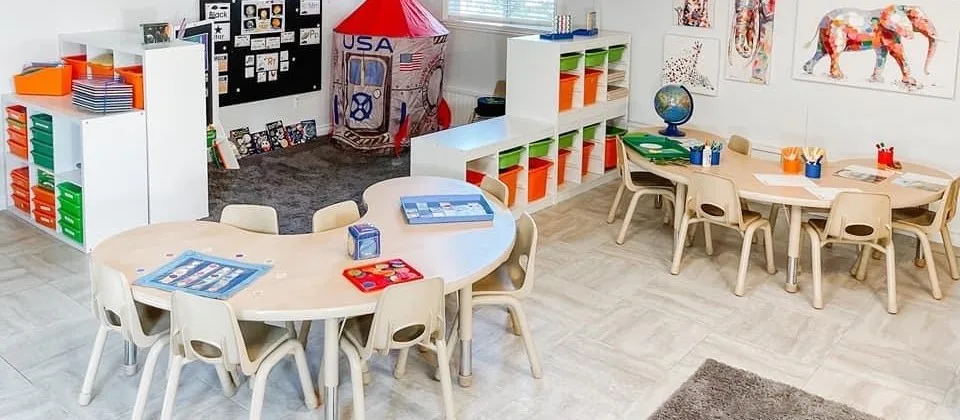Embarking on the journey of opening a daycare is a task that requires extensive preparation and careful planning, as discussed in “A Comprehensive Guide to Opening a Daycare: From Early Childhood Education to Marketing Strategies”. This in-depth guide walks you through each crucial step, starting from upgrading your understanding in early childhood education (ECE), understanding essential laws and regulations related to childcare business, to creating a foolproof business plan and budget. It encourages you to research and network with the existing daycare setups in your vicinity and helps you identify a suitable location, keeping safety, accessibility, and space in mind.
This guide not only assists in setting up the perfect space, verifying daycare-specific insurance policies but also helps you in formulating efficient daycare policies and recruiting suitable staff. And last but not least, effective marketing strategies for your daycare have been discussed to ensure your daycare attracts the right audience. Crafting your dream daycare center becomes simpler with this comprehensive guide.






Understanding Early Childhood Education
Daycare is not just babysitting; it plays a critical role in a child’s early development. Understanding early childhood education (ECE) becomes an inherent part of starting a daycare. It not only enables you to understand children’s unique needs better but also helps to gain the trust and confidence of parents.Importance of Early Childhood Education in Daycare
Early childhood education is a critical aspect of a child’s overall development, influencing cognitive, social, and emotional growth. As a daycare provider, having a solid foundation of ECE allows you to design appropriate programs and activities that foster learning and development in a safe, nurturing environment.Gain Knowledge and Credibility through Early Childhood Education
Learning about early childhood education is not just about acquiring knowledge; it also adds to your credibility as a daycare provider. Parents feel more secure knowing that their children are in the hands of someone who understands child development and can provide their children with the right stimulation and care.Relevant Certifications for Daycare Professionals
In addition to early childhood education knowledge, certain certifications, including CPR and first aid, are often required for daycare professionals. These demonstrate your readiness and capability in handling emergency situations and ensuring the safety of children at your daycare facility.Complying with Childcare Laws and Regulations
Daycare businesses need to meet specific legal and regulatory requirements. Understanding local childcare laws and familiarizing yourself with regulatory bodies are essential steps towards getting your daycare center off the ground.Necessary Certifications and Licenses
Depending on your locality, different certifications and licenses may be necessary to operate a daycare center. These may range from health and safety certifications to business permits. It’s essential to thoroughly research your area’s requirements to ensure compliance and avoid potential setbacks.Understanding Local Childcare Laws
Before setting up your daycare center, it’s crucial to familiarize yourself with local childcare laws, including regulations about staff-to-child ratios, health, safety standards, and more. These laws are designed to ensure high-quality care and protect the rights of children.Regulatory Bodies in Childcare Business
Various government and industry regulatory bodies oversee childcare businesses. Familiarizing yourself with these organizations and their guidelines can provide you with valuable insights and resources for your daycare center, as well as ensure you keep up-to-date with any changes in regulations.Conducting Competitor Research
Conducting competitor research is an essential step in setting up your daycare business. It helps you understand the market, identify opportunities and gaps, and learn from successful daycare centers in your area.Characteristics of Successful Daycare Centers
Look at successful daycare centers in your area and identify what makes them stand out. It could be their program curriculum, their unique facilities, or their positive relationships with parents. Understanding these characteristics can provide ideas on how to differentiate your daycare center.Understanding Market Rates and Services
Researching the existing market rates and services helps you in pricing your daycare services competitively. Recognize what additional services competitors are offering and whether these could also be beneficial in your daycare.Importance of Networking with Competitor Daycare
By networking with other daycare centers, you can form mutually beneficial relationships. These partnerships can be handy in instances where a center cannot accommodate a client and chooses to refer them to your daycare.Developing a Daycare Business Plan
A well-structured business plan is vital for the sustainability and growth of your daycare center. It constitutes a roadmap guiding your business decisions and helping you stay focused on your goals.Elements of a Solid Daycare Business Plan
Key elements of a solid daycare business plan include a clear mission and vision, detailed plans for curriculum and staffing, financial forecasts, marketing strategies, and more. Each part of the plan addresses a critical aspect of your daycare business, paving the way to its success.Budgeting for Your Daycare Business
Good financial management is critical for the success of your business. Setting a realistic budget helps you plan for costs and manage resources efficiently. It can also be a valuable tool to track your daycare’s financial growth over time.Importance of a Business Plan for Sustained Growth
A business plan is not just a startup requirement but a strategic tool for sustained growth. It enables you to set goals, measure progress, and make informed decisions, ensuring the continued success of your daycare center.
Identifying Suitable Locations for Daycare
Choosing a location for your daycare center is a critical decision. Factors such as safety, accessibility, and space significantly impact the functionality and success of your daycare center.Location Requirements for Daycare Centers
Daycare centers require locations that are accessible, safe, and caters enough space for children to play and explore. You should also consider proximity to residential areas, access to outdoor space, and the availability of parking for parents.Evaluating Safety and Accessibility
Safety and accessibility should be top considerations when looking for a daycare location. The site should be in a safe neighborhood and easily accessible to families. Ideally, it should be near schools, parks, and other family-centered amenities.Considerations for Space and Layout in Daycare Centers
The space and layout of your daycare center should be child-friendly and allow for different activities. Besides classrooms, consider spaces for eating, napping, playing, and outdoor activities. The design should also facilitate supervision and free movement of the children.Designing Daycare Interiors
Creating a child-friendly and safe interior environment is essential for a daycare center. It should incorporate safety features, functional spaces for various activities, and effective storage solutions.Importance of Safety in Daycare Design
Safety is paramount when designing daycare interiors. From non-slip floors and secure furniture to child-proof electrical outlets and secure outdoor spaces, all features should reduce potential hazards and establish a safe environment for children.Space Organization and Storage Solutions
Good organization and storage solutions can enhance the functionality and comfort of your daycare center. Effective storage keeps materials accessible yet out of the way, reducing clutter and preventing accidents.Creating Functional Areas for Various Activities
Dividing space into functional areas provides structure and routine to children’s day. Designated areas for activities like arts and crafts, reading, play, and rest, help children understand where and when specific activities take place.
Daycare Specific Insurance Policies
Insurance is a crucial component of risk management in your daycare business. It provides financial protection against unforeseen events like accidents, property damage, or lawsuits from parents.Understanding Insurance Needs for Daycare
Before purchasing insurance, it’s important to understand the unique risks that your daycare business faces. The insurance policy should cover any liabilities related to the children under your care, employees, and the business property.Types of Daycare Insurance Policies
There are different types of insurance policies geared towards daycare providers. These can include general liability insurance, property insurance, workers compensation insurance, and more. Each provides coverage for different aspects of your business and should be selected based on your specific needs.Importance of Insurance in Risk Management
Insurance serves as a risk management tool for your daycare business. It provides you with a safety net, protecting your business from the potentially devastating effects of accidents or other unforeseen adverse events.Formulating Daycare Policies
Daycare policies provide a framework of how your center operates. These can include policies on payments, sick children, and emergency procedures.Designing an Effective Payment Policy
A clear payment policy helps avoid misunderstandings and future disputes with parents. It should outline details on fees, payment schedules, late fees, and discounts, if any.Developing a Sick-child Policy
Managing illness in a daycare center is crucial to prevent the spread of diseases. A sick-child policy should clearly define when a child should stay home and the process for managing and reporting illnesses within the daycare center.Emergency Procedures and Policies in Daycare Center
Having a well-detailed emergency procedure ensures the safety and well-being of the children and staff in case of an emergency. The policy should outline evacuation procedures, emergency contact information, and steps for dealing with various types of emergencies.
Recruiting and Training Daycare Staff
Your daycare staff play a key role in the everyday functioning and overall success of your daycare center. Hiring qualified staff and providing regular training can help maintain high standards of care.Finding Qualified Daycare Staff
Hiring professional and passionate staff enhances the quality of your daycare services. Candidates should be qualified, experienced, and passionate about working with children.Training Staff to Align with Daycare Philosophy
While qualifications and experience are important, aligning staff with your daycare’s philosophy is equally essential. This is achieved through regular training – reinforcing expected behaviors, values, and the overall vision of the daycare center.Importance of Continuous Staff Development
Continuous staff development ensures your team stays updated on current childcare practices and regulations, enhances their skills, and ensures the consistent delivery of quality care.Marketing Strategies for Daycare Centers
With many daycare options available, effective marketing helps distinguish your daycare center and attract more families.Effective Use of Social Media in Daycare Promotion
Social media can be a powerful tool in promoting your daycare center. Sharing photos, updates, and information about your services can effectively reach your target audience and build trust and familiarity with your center.Building Connection with Local Pediatricians and Parents
Creating connections with local pediatricians can be beneficial as they often have the trust of families and could recommend your daycare. Likewise, building strong relationships with parents can lead to referrals and good word-of-mouth publicity.Importance of Word-of-Mouth Marketing for Daycare
Never underestimate the power of word-of-mouth marketing, especially in the daycare business. Rewarding parents for referrals not only increases enrolment but also builds a community that supports and promotes your daycare center.
-This article was written by Rebecca Calbert.
Rebecca is a licensed architect with over 30 years of experience. She owns and operates an architectural firm, Calbert Design Group, and educates her clients through the commercial real estate development process with online content at SaveOnBuilding.com. Rebecca’s “purpose” is to educate small business owners and protect them from what they don’t know.


